Police say WA drug laws are too lax. Tri-Cities took the issue into its own hands
Tri-City leaders say law enforcement’s hands are tied when it comes to dealing with increasing drug use on public sidewalks, street corners and business doorways.
Following a state Supreme Court ruling that forced changes to the enforcement of drug possession laws, police say many have been left with the impression that there are no criminal consequences for public drug use.
Washington state law currently aims to reduce drug convictions by requiring police to refer offenders to treatment first.
But Tri-City leaders who think the possession laws are ineffective believe they now have a way to put teeth back into drug enforcement.
And while the Legislature is considering some legal changes this year, many cities don’t think the proposals go far enough and aren’t waiting to fill in the expected gaps.
Kennewick and Richland are among the first of a growing number of cities flexing their ability to go beyond state law to criminalize using drugs in public.
Pasco is waiting to see what the Legislature passes before considering local ordinances of its own.
The pressure on lawmakers may already be working, with state senators now pushing to adopt portions of the ordinances that some cities are passing in their proposals.
But the American Civil Liberties Union is throwing up a warning flag.
“The adoption of these ordinances is a political strategy to keep pressure on Olympia to pass a law this session.... It’s not good policy,” said ACLU Washington’s political strategies director Alison Holcomb.
“Washingtonians deserve a coherent, science-based public health response to substance use disorder and the nationwide overdose epidemic, not a patchwork of different laws across the state.”
New city drug laws
New city ordinances in Kennewick and Richland allow police to charge a person using drugs in public or having drug paraphernalia with a misdemeanor rather than referring them to treatment the first two times they’re caught.
Richland police Commander Jon Schwarder said that the ordinances were a response to concerns from residents and will help police ensure there are consequences for using drugs in public and discarding drug paraphernalia such as needles or fentanyl-laced foil.
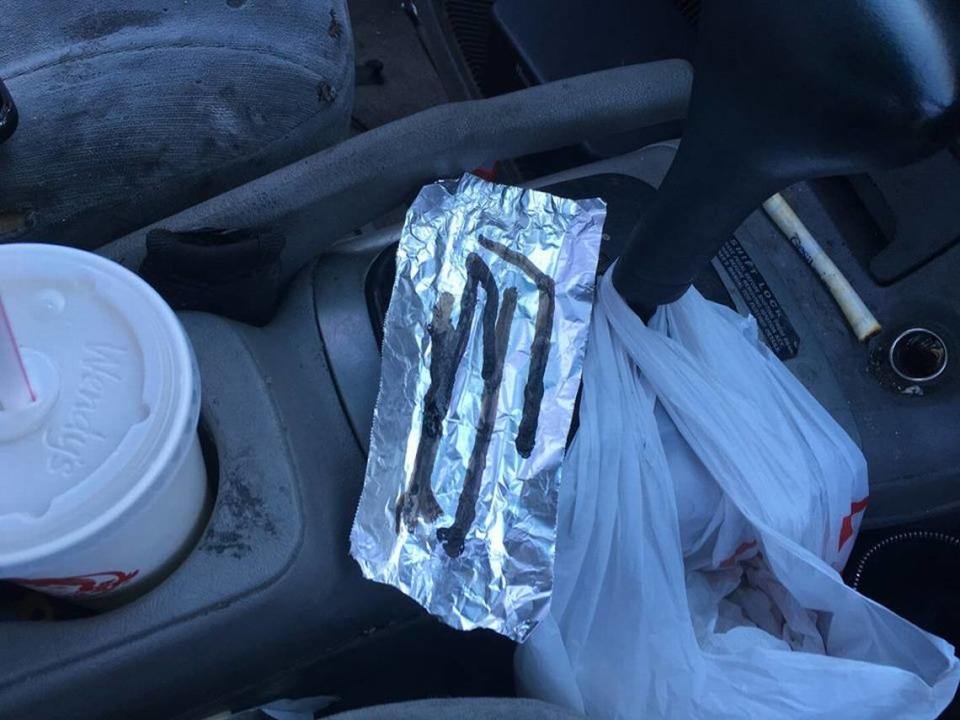
“There are some flaws in the referral system,” Schwarder said. “(The ordinances) definitely address the problem of people using illegal drugs in open public places. That’s better for businesses, it’s better for quality of life for people who live and work in our city, and it definitely shores up holes in our system.”
Schwarder said that the current referral system has gaps because not all agencies use the same software, so if someone is referred in Richland then gets caught in Yakima or Seattle, then officers in those areas may never know there have been multiple referrals already.
He also said the current resources for treatment in the area aren’t enough for every drug contact to be sent to referral. But with an arrest or ticket, prosecutors can try to direct someone into drug court.
The current law for drug possession is set to expire in July if a replacement is not passed this legislative session.
While the consumption ordinance excludes cannabis, which already has restrictions on public use, the new rules could potentially impact marijuana users under paraphernalia littering laws. The ordinances as written use current definitions, which include common cannabis paraphernalia.
Ineffective law
Schwarder said the littering portion of the ordinance has become particularly important because of the high number of calls police receive about residents finding discarded needles or foil with fentanyl residue in public places and near parks.
He said they were particularly concerned with discarded items used to consume fentanyl because of the residue or partial pills left, because even a small amount is dangerous if accidentally ingested.
They believe it also will help police because simply warning someone away or attempting to trespass them from a public space is difficult to enforce.
“Private property would be a different story, but the current referral system was just ineffective at preventing people or discouraging open drug use,” he said.
He hopes that the new ordinances will begin to correct the wrong perception by some that drug use is legal in Washington.
Kennewick and Richland are among a growing number of municipalities across the state looking to tighten drug laws after the state Legislature moved to a more treatment-oriented response after old drug possession laws were found unconstitutional.
Richland’s ordinance was based on a move by Kent’s city council.
Schwarder said that these efforts have been largely prompted by local concern, and encouraged people to speak to their city councils and county commissioners when there are crime and safety issues they’re concerned about.
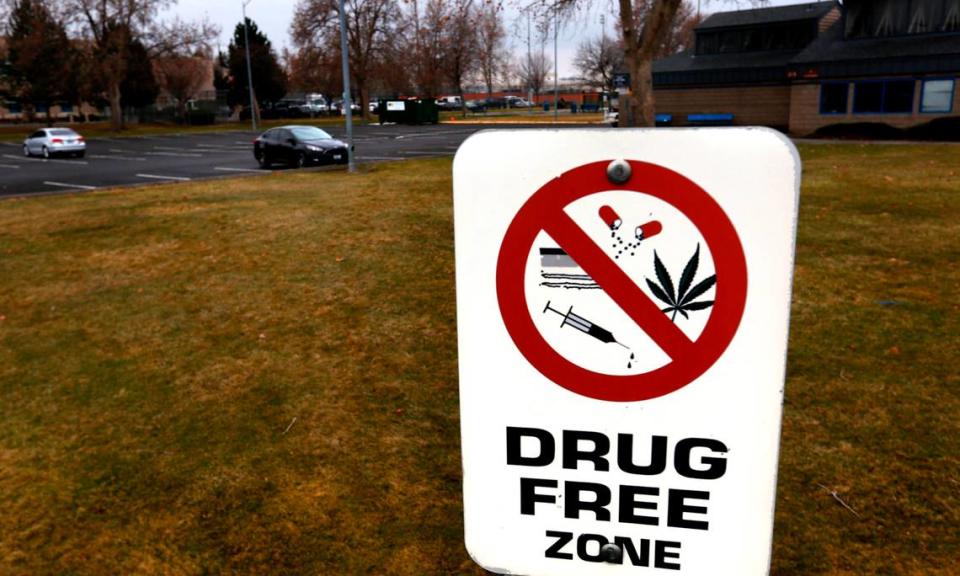
After speaking with community members, they approached the city attorney to see if Kent’s new ordinance could work in the Tri-Cities.
“We saw a huge amount of support when we published this on our Facebook page,” he said. “It makes an impact on the rising tide of drug use and on crime. Sometimes an arrest is actually the beginning of sobriety, once they’re incarcerated they have a huge opportunity to get sober, and we can help direct them to resources, like offering them entry into mental health court or even veteran’s court.”
But with limited openings in those courts, State Office of Public Defense Director Larry Jefferson told the Herald there needs to be more investment in treatment options.
“We just don’t seem to be using our full arsenal to move people out of the public spheres, we don’t have enough civil beds,” he said.
“To me, the answer is let’s build more civil beds instead of (increasing criminalization) but I think a city needs to give their citizens safety in a public space. I think that we just don’t need to call folks criminals,” he said.
“We need to be realizing that we have not created the infrastructure to help folks with their addiction needs, that’s what we need to increase,” Jefferson said.
“When we add peer support, social workers and a place to go, you can work miracles ... It is possible to put in the investments, and it’s relational. If people don’t feel like they belong they continue to use.”
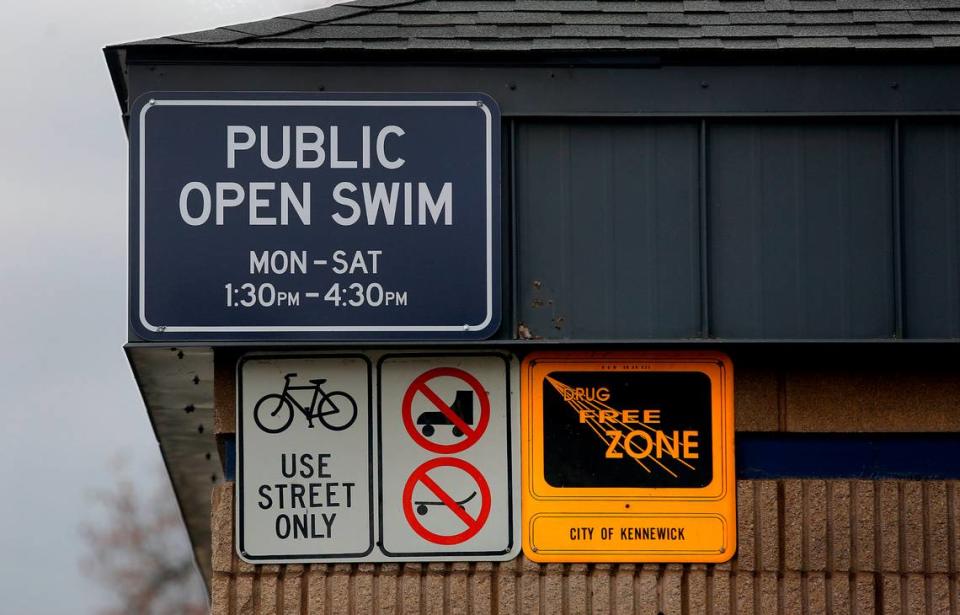
Similar measures
Kennewick and Richland aren’t the only cities deciding that they can’t wait for other options to catch up.
Schwarder said Toppenish also has adopted a similar ordinance.
And Lakewood also passed a drug use ordinance recently, alongside a ban on overnight camping in public places. The camping ban is directly aimed at the homeless population, with a requirement that police can only enforce it if there are no available beds at homeless shelters within 15 miles.
If there are open beds and they refuse to go to a shelter, police could then enforce the ordinance. Those will go into effect within 30 days, according to the Tacoma News Tribune.
While the Tri-Cities ordinances don’t specifically target the homeless population, previous discussion during a recent Kennewick council workshop centered heavily around examples such as drug use in homeless encampments and by transients near businesses.
Schwarder said their intent isn’t to target unhoused people, just individuals engaging in drug use in public.
The cities argue that state law only refers to possession of a dangerous substance, not consumption, so they have a legal right to fill in that gap.
Kennewick City Council approved the ordinances unanimously March 21, and it’s already taken effect.
Richland had a first reading of the ordinance Jan. 3 and approved it Jan. 17 with no public discussion by Richland council members at either meeting. It took effect Jan. 24.
Kennewick Assistant City Attorney Laurencio Sanguino said that through March 21, Richland had enforced the ordinances seven times. Six for drug use and once for littering, according to information presented to the Kennewick council last week.
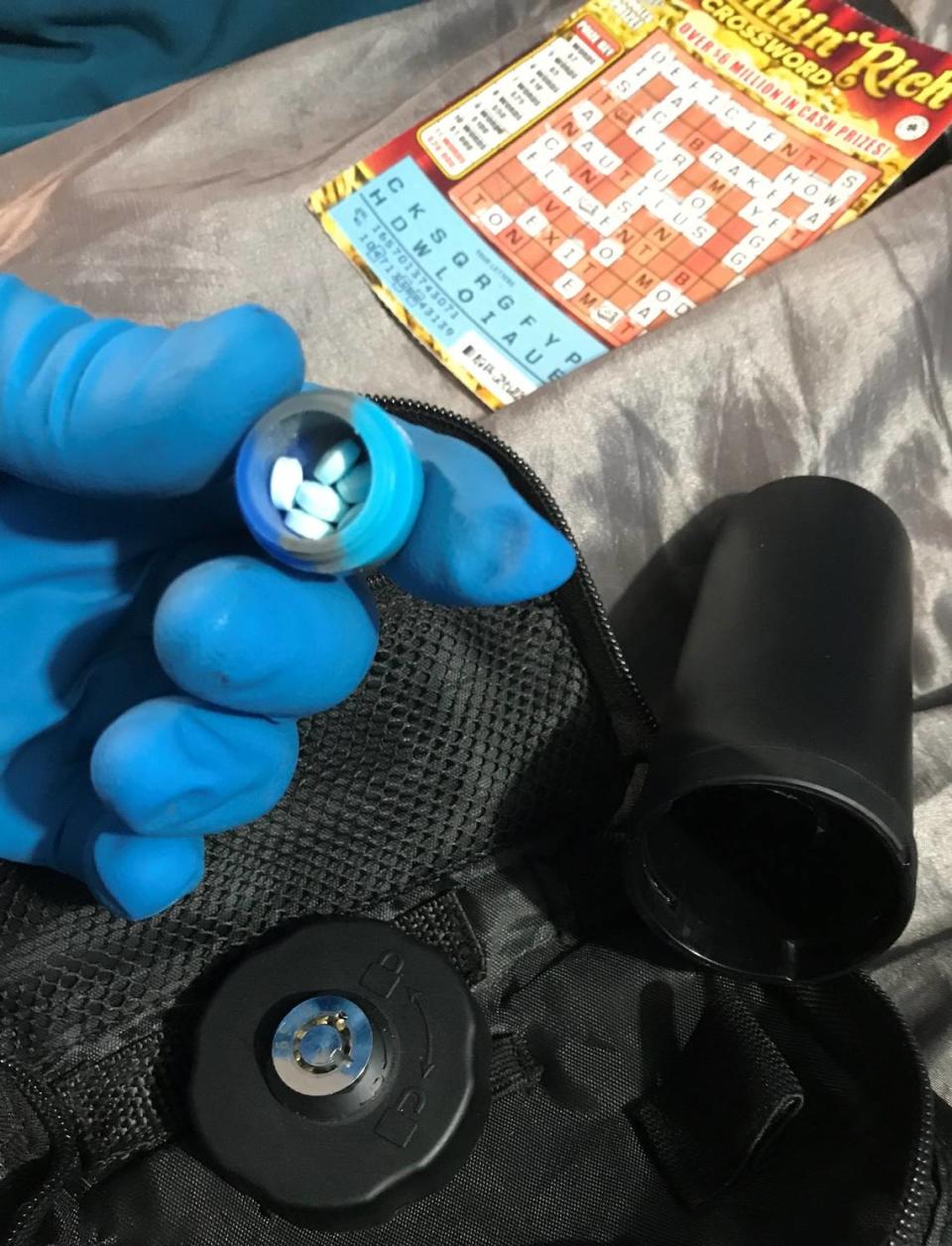
Kennewick drug cases
Data presented by Kennewick police showed that of 337 referrals in the past 10 months, 22 suspects were referred twice and only two people were referred more than twice. None were charged.
Sanguino told the council that he pulled the data from police drug encounters and found that of 585 total encounters, 582 would have led to felony prosecution under old laws.
That means Kennewick police responded to drug use or littering calls about twice a day during the 10-month period. Drug possession under the current law is now a misdemeanor, and there is a requirement to refer suspects to treatment programs for at least the first two offenses.
Sanguino said that while they can pull data from Richland’s encounters because they use the same systems, they can’t pull other areas in the state, which could lead to people avoiding prosecution.
He said that in most cases officers are seizing and destroying fentanyl and methamphetamine. In some cases both, from the same suspect.
“There are several suspects who we are prosecuting for property crimes, who were repeatedly referred for consumption or overdose,” Sanguino told the council. “There’s a direct impact, now that they know there’s no possibility of them getting charged, they’re no longer reluctant to use in public places.”
Mayor Pro Tem Gretl Crawford asked if the police would need to see the consumption themselves or if a business owner could just turn someone in.
Kennewick police Commander Randy Maynard said officers need to witness the use, but he believes the ordinance will help the department combat growing issues with drugs, especially fentanyl.
Crawford also asked about whether the littering portion of the paraphernalia ordinance could be used in some way to precipitate contact with unhoused people living in abandoned or rundown RVs off Railroad Avenue based on the debris and trash scattered around.

“Our belief is it would help us, it would help us in lots of different ways, through contacts with the public, especially with the people we know are possessing personal amounts. The Blake decision when it came out really hamstrung our ability to charge any narcotics related offenses outside of the felony distribution.”
“We struggle with the personal amounts incidents. People such as those that may occupy those abandoned RVs down along the railroad, those residents don’t have the thousands of fentanyl pills, they may have a couple that would get them through the night, that would help us with them.”
Another concern raised was dangerous items discarded near homeless encampments.
Sanguino said the most likely charges to come from the new ordinance will be for discarding paraphernalia, especially foil used in smoking fentanyl.
This could help police make contact with homeless people if they see signs of drug use. Sanguino said police would need to document any drug related items or use in order to prosecutors to make a case. Fentanyl deaths reached a record high in the Tri-Cities in 2022.
Councilman Loren Anderson said, “Allowing public consumption of drugs in our community is very harmful to our community ... I don’t know the craziness behind the idea to legalize all these things in a public place, but to me, if in order to protect our community, if we can circumvent that, going away from possession to consumption, I’m all for it.”
Proposed possession law
The proposed Washington law that Sanguino expects to be passed would make possession a gross misdemeanor, create pretrial diversion programs, require courts to vacate the charge once a defendant completes drug treatment programs and encourages, but does not require, prosecutors to refer offenders to treatment.
Defendants who fail the program or refuse treatment would face a mandatory minimum sentence of 21 days in jail on the second offense and 45 days on the third.
Sanguino said the difference between a misdemeanor and a gross misdemeanor is that misdemeanors have a maximum sentence of three months in jail, while gross misdemeanors can carry sentences up to one year.
The state Senate proposed amendments this week to add public drug use to the bill.
The House version would reduce the charges to regular misdemeanors. The bill now goes back to the House to reconsider.
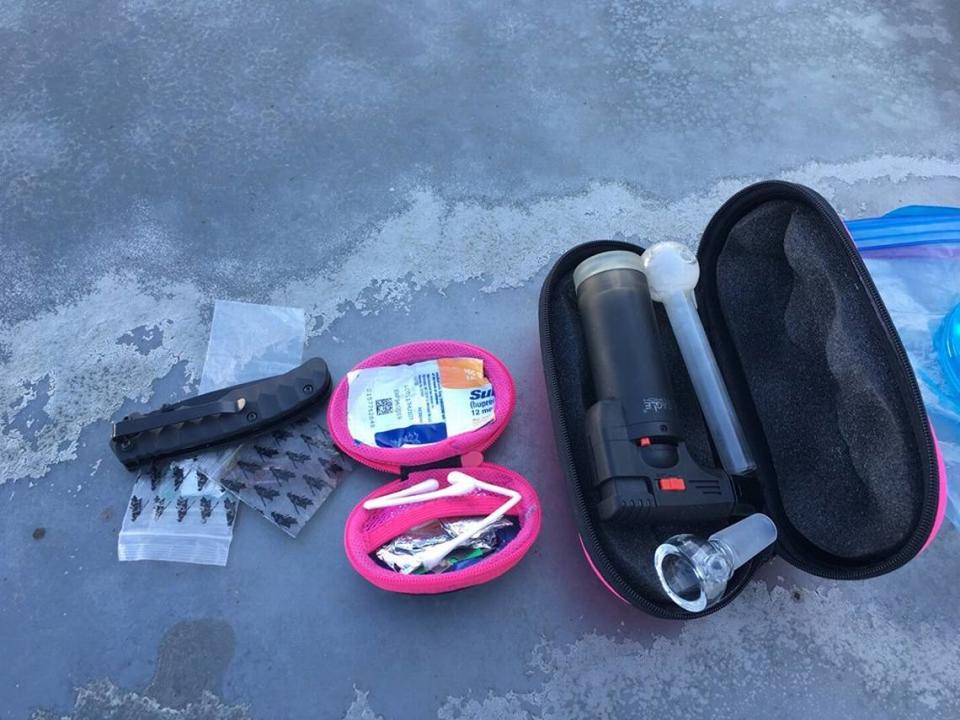
What the ordinance says
The consumption ordinance would make it unlawful for anyone to intentionally use any dangerous drug in an area generally visible to public view, except with a prescription or as permitted by state law.
The discarding of paraphernalia ordinance would make it unlawful for anyone to knowingly thrown on the ground or into any body of water any dangerous drug or drug paraphernalia.
Blake decision
State v. Blake was a Washington Supreme Court case that effectively declared the state’s drug possession laws unconstitutional because they did not contain a provision for the suspect to have known they were in possession of an illegal substance.
After that decision, the Legislature passed a law that would lower possession of drugs from a felony to misdemeanor and required that suspects be referred to treatment the first two times they are caught.
Treatment could come in the form of participating in drug court, veteran’s court, mental health court or other similar therapeutic courts that require a defendant to meet criteria for treatment and recovery.
Benton County has a mental health, drug and veteran’s courts, but they have a low capacity for the number of participants.
The council is expected to get an overview of those courts in April.

 Yahoo Autos
Yahoo Autos 